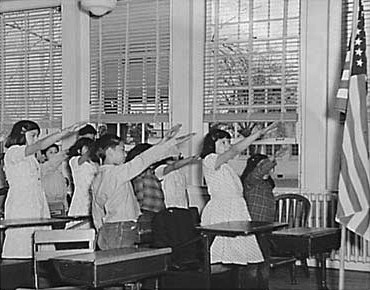
When a Pew research poll discovered a shocking divide between self-identifying Republicans/GOP-leaning Independents and their Democratic Party opposites on the question of the value of higher education, the commentariat went apeshit. Here’s a brief rundown of sources, left, center, and right, and what they decided are the key issues:
- National Review: Higher education has eroded the Western canon and turned into a devious plot to rob our children of good thinking, spiked with avocado toast.
- Paul Krugman at New York Times: Conservative tribal identification leads to opposition to climate change science or evolution, and further towards a “grim” anti-intellectualism.
- New Republic: There is no evidence that college kid’s political views are changed by higher education and, also, that conservative-minded professors aren’t much maltreated on campus either, so the conservative complaints are just overblown anti-liberal hype that, they point out, has some very negative consequences.
I would make a slightly more radical claim than Krugman, for instance, and one that is pointedly opposed to Simonson at National Review. In higher education we see not just a dedication to science but an active program of criticizing and deconstructing ideas like the Western canon as central to higher thought. In history, great man theories have been broken down into smart and salient compartments that explore the many ways in which groups and individuals, genders and ideas, all were part of fashioning the present. These changes, largely late 20th century academic inventions, have broken up the monopolies on how concepts of law, order, governance, and the worth of people were once formulated. This must be anti-conservative in the pure sense that there is little to be conserved from older ideas, except as objects of critique. We need only stroll through the grotesque history of Social Darwinism, psychological definitions of homosexuality as a mental disorder, or anthropological theories of race and values to get a sense for why academic pursuits, in becoming more critically influenced by a burgeoning and democratizing populace, were obligated to refine what is useful, intellectually valuable, and less wrong. The process will continue, too.
The consequences are far reaching. Higher education correlates necessarily with liberal values and those values tend to correlate more with valuing reason and fairness over tradition and security. That means that atheism has a greater foothold and science as a primary means of truth discovery takes precedence over the older and uglier angels of our nature. The enhanced creativity that arises from better knowledge of the world and accurate and careful assessment then, in turn, leads to knowledge generation and technological innovation that is derived almost exclusively from a broad engagement with ideas. This can cause problems when ordering Italian sandwiches.
Is there or should there be any antidote to the disjunctive opinions on the value of higher learning? Polarized disagreements on the topic can lead to societal consequences that are reactive and precipitous, which is what all three sources are warning about in various ways. But the larger goals of conservatives should be easily met through the mechanism that most of them would agree is always open: form, build, and attend ideologically-attuned colleges. There are at least dozens of Christian colleges that have various charters that should meet some of their expectations. If these institutions are good for them and society as a whole, they just need to do a better job of explaining that to America. Then, like the consumer flocking from Microsoft to Apple, the great public and private institutions will lose the student debt dollar to these other options and, finally, indoctrination in all that bright sarcasm will end in the classroom. Maybe, then, everyone will agree that the earth is only a few thousand years old and that coal demand proceeds from supply.
Added and refined values differences via Jonathan Haidt’s scholarship.